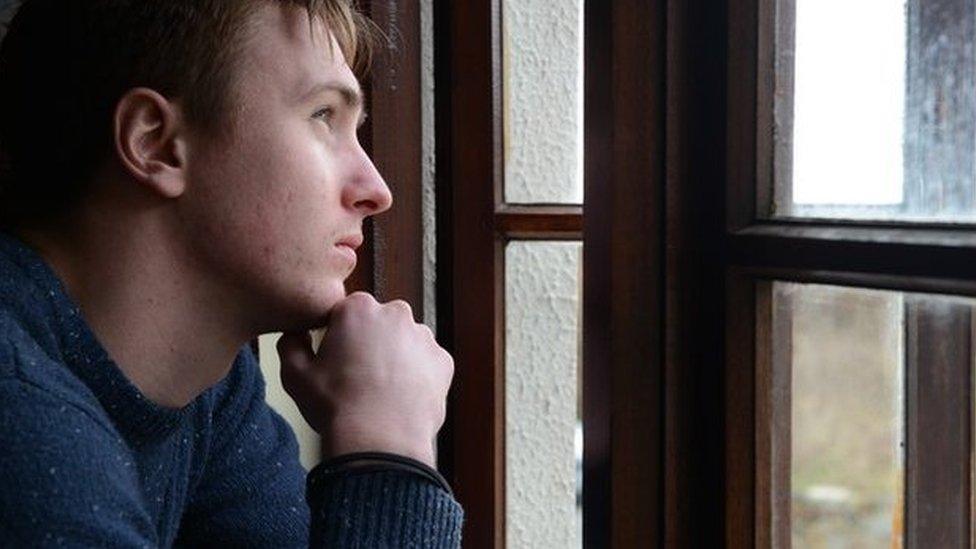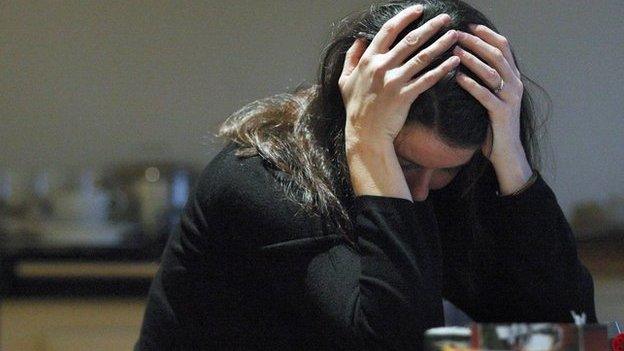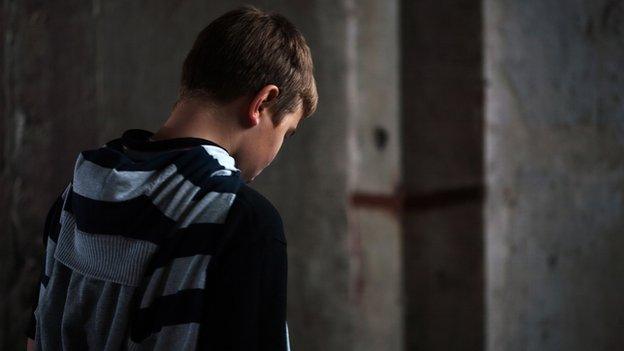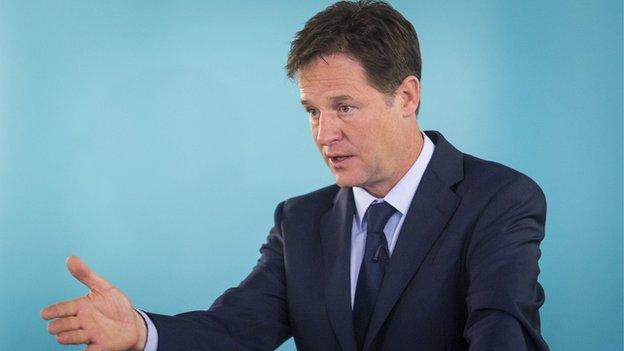Mental health cuts 'put lives at risk'
- Published

Cuts to adult mental health services in England have started damaging the quality of care given to patients, a report suggests.
The review by the King's Fund think tank found there was now "widespread evidence of poor quality care".
Researchers linked this to the use of unproven, cheaper services in a bid to balance the books.
One mental health charity says "disappearing" services are putting lives at risk.
But the government said the amount of money being made available for mental health had been increased overall.
The review also pointed to growing evidence that there was inadequate support for those with severe problems.
It said only 14% of patients had reported receiving appropriate care in a crisis, while hospital bed occupancy rates were routinely exceeding recommended levels - leading to patients being sent to units many miles away from their home.
The think tank looked at official data and previous research as well as carrying out its own analysis to come to its conclusions.
Why there is a mountain to climb on mental health
Follow Nick on Twitter, external
It warned that many of the changes now being made to help trusts cope with cuts to their budgets - four in 10 have seen their income drop in the past year - represented a "leap in the dark" because of a lack of evidence they would work.
These included the merging of specialist teams that deal with crisis situations and those that provide early access to psychosis services, into generic community teams that are not always equipped to deal with the demands being placed on them.
'Not appropriate'
One woman, who the BBC is calling Kate, said her acutely suicidal father was taken by ambulance staff to a mental health café because they could not find him a hospital bed. She said it was meant to be a place where people could talk about their problems.
"It's certainly not appropriate for somebody who is very suicidal. In fact it's not safe to take someone like that to a café.
"They need to be in hospital, their life is at risk. They need to be treated by medical staff as you would anybody with a serious health condition."
"Kate" tells how her suicidal father was taken to a "mental health cafe"
The King's Fund think tank also found:
More than two-thirds of mental health trusts were or had recently overhauled services
Of those, more than half had plans to reduce staffing levels or the skills mix in its workforce
A quarter were aiming to use less qualified staff, by replacing nursing with volunteers and support workers
More than 10% said they would be further reducing bed numbers
The King's Fund said some of these changes had even pre-empted cuts to budgets - a sign that trusts feared they would face more cuts in the future.
'Lives at risk'
Report author Helen Gilburt said: "Trusts have looked to move care from the hospital to the community focusing on self-management and recovery.
"Few would dispute the intention and rationale for this - the problems arise with the scale and pace of the changes which lack the necessary checks to evaluate their effectiveness and the impact on patient care."
Marjorie Wallace, of the charity Sane, said she too was concerned. "A lot of mental health services are disappearing and we really believe that people's lives are being put at risk unnecessarily."
Stephen Dalton, chief executive of the NHS Confederation's Mental Health Network, which represents providers of mental health and learning disability services in England, told BBC Radio 4's Today programme there was a "yawning gap between the rhetoric and reality when it comes to mental health policy in England".
"The problem is mental health policy in England has become a spectator sport with everybody from the prime minister to NHS England standing on the sidelines talking about what should happen, whilst local services actually aren't seeing any new funding and in fact are being cut.
"And that together with cuts to social care is resulting in the most dreadful stories and experiences for people who are very vulnerable and in need of services."
But ministers said overall the amount of money being made available for mental health had been increased - by £300m last year to £11.7bn - and improvements were being made by steps such as the introduction of waiting-time targets as part of the drive to achieve "parity of esteem" between mental and physical health services.
Care Minister Alistair Burt added: "We have made great strides in the way that we think about and treat mental health in this country.
"We have made it clear that local NHS services must follow our lead by increasing the amount they spend on mental health and making sure beds are always available.
"But as well as providing care for those in crisis, it is right that we invest in helping people early on so they can avoid that crisis and manage their conditions with support at home rather than in hospital."
- Published14 March 2015

- Published9 January 2015

- Published8 October 2014

- Published7 August 2014

- Published19 January 2015
